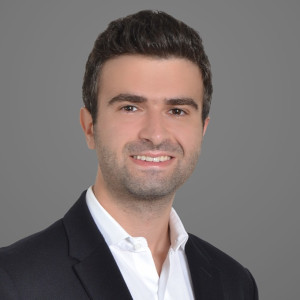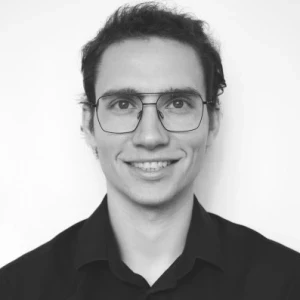Hello,
Any help with McKinley's behavioral questions before the case interview.
I am not sure how to prepare for them and what to except.
If there is any tips on they are looking for and what I need say/do will be much appreciated!
Hello,
Any help with McKinley's behavioral questions before the case interview.
I am not sure how to prepare for them and what to except.
If there is any tips on they are looking for and what I need say/do will be much appreciated!


Hi there,
generally speaking about personal interview, bare in mind:
•Questions will be selected based on your CV and cover letter (in addition to your job position), ensure alignment when preparing all 3
•Choose the right stories, ensure they transmit unequivocally the key strengths MBB looks for (and they are better than the 99% of other candidates) -> challenge you on this
•Prepare approx. 2 stories per topic (e.g. leadership, impact)
•Be specific and provide evidence: quantify, use KPIs/numbers - they stick in mind!! (Bear in mind that, just because you held some role does not mean you were actually good at it)
•talk about a specific experience that reflects how you demonstrate a particular consulting-relevant trait that doesn’t leave any doubt and room for misinterpretation
to prepare a story:
1. Make sure to share context of the story - the obvious to you, e.g. Ikea is the largest furniture producer and seller worldwide with xxx % of market share: 99% forget it which makes impossible to follow
2. Explain your role
3. Your solution (should be clear it was your call, and you equivacably demostrate key skills)
4. Result and impact
5. Learning and future use
Last but not least test your stories. Tell them someone with very different background and tell them to tell you what they understood. This is the best method.
Good luck!
Lucie
Was this answer helpful?

Hi there,
On your question:
1) How is the PEI interview process?
2) Which dimensions you should cover?
Best,
Alberto

Hey there,
I have written a very detailed article on the McKinsey behavioral interview (the PEI).
McKinsey interviews are highly standardized across the globe to ensure objectivity and reduce bias. That is why they consist of the same two main components in each office, the problem-solving interview, and the personal experience interview.
At its core, the McKinsey Personal Experience Interview is a behavioral interview, yet it comes with a twist. Instead of asking many rapid-fire questions like in a typical personal fit interview (e.g., what are your strengths, weaknesses, why consulting, why McKinsey, etc.) it revolves around three specific character traits that will be discussed in great detail.
Each Personal Experience Interview focuses on one specific trait at a time and can last up to 20 minutes. In the whole process, you will have to talk about three different traits, more specifically
The interviewer will ask you about a situation where you led a team through a challenging time to achieve a certain goal. For this dimension, you need to show that you ...
Overall, showcase that your presence as a team leader had a positive impact on the team and lead to a strong outcome for a particular project or task.
For this dimension, the interviewer will ask you about a situation where you set a goal for yourself and achieved it against all odds. You need to demonstrate
For this dimension, you will be asked to tell a story in which you influenced or persuaded an individual or a group of people. This can either be about them adopting a certain idea or plan of yours, helping you with achieving your own goals and driving something together, etc. Focus on stories that showcase how you
Courageous Change
McKinsey has started to replace the Entrepreneurial Drive dimension with a new dimension called Courageous Change in a couple of countries. What they want you to talk about is a situation where you faced and maneuvered a significant change or an ambiguous situation, adapting to new circumstances. You need to demonstrate that you
The new dimension is very similar to Entrepreneurial Drive and most of your content elements overlap.
For more on how to structure and tell your stories, see here: https://www.preplounge.com/mckinsey-pei
Cheers,
Florian

Hello,
You need to focus on 2 things:
1) Prepare detailed stories: I'm sure you are aware of the standard FIT questions in consulting interviews. How this differs for McKinsey, is that you need to be able to talk for 5-10 minutes on this same topic if prompted by the interviewer. Often times you may start with the standard 2 min answer to a question, but then the interviewer will probe further and ask you what exactly was the situation, what exactly did you do, what exactly were the results.
Thus it is very important that you flesh out the details while you are preparing to be able to add/subtract details during the interview.
2) Prepare alternate stories: As you may already know, the same question may be asked by more than 1 interviewer. In this case, you must mention different stories. Its a general practice to not repeat the same stories across interviews. And thus you would need to prepare 3-4 alternate stories for every fit question. Of course, if your stories have multiple takeaways, you can tweak a ‘success’ story and make it a ‘favourite project’ story and thus minimise your overall effort.
Happy to discuss over chat.
All the best!
Rushabh

Hi there,
There are known types of PEI questions (leadership, impact, entrepreneurship and problem solving). In order to crack these, you would need to:
1- understand the difference between these and what the interviewers usually look for
2- Have your stories ready and ensure they are flexible and diverse enough to fit multiple skills/themes
3- Practice, practice, practice. I can't stress enough on how much that's important as you can only get so far by going through the theory only without testing the PEI part with peers or coaches.
Mario

Hi there,
There's so much here that just a Q&A won't be sufficient! If you're starting from scratch I recommend both Florian and Francesco's PEI guides.
There are also so many resources out there!
If you're really struggling, I highly recommend getting a coaching to help you have the best possible story.














